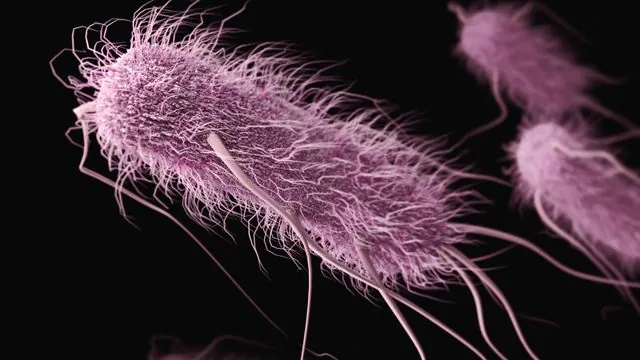
Revolutionary Discovery: Unique Microbe Combo Holds Promise Against Antibiotic-Resistant Infections!
2024-09-20
The Growing Crisis of Antibiotic-Resistant Infections
Antibiotic-resistant infections are a growing healthcare crisis, particularly in patients suffering from chronic inflammatory conditions such as inflammatory bowel disease. With traditional antibiotics proving ineffective against these resilient bacteria, researchers are increasingly exploring innovative treatments.
Groundbreaking Study Unveils Potential Solution
A groundbreaking study from Keio University School of Medicine in Tokyo and the Broad Institute of MIT and Harvard has unveiled an exciting potential solution: a specific combination of 18 bacterial strains isolated from the stools of healthy individuals could pave the way for new treatments. These carefully selected strains demonstrate a remarkable ability to suppress the growth of Enterobacteriaceae and alleviate inflammation in the intestines of mice by outcompeting harmful bacteria for vital nutrients.
Challenges in Defining Beneficial Microbiomes
Published in the prestigious journal Nature, the research highlights the challenge of defining the beneficial characteristics of gut microbiomes due to their individualized nature. Marie-Madlen Pust, a key researcher in the study, notes that each person's microbiome is unique, complicating efforts to determine how particular microbial strains can effectively combat infections.
The Importance of Understanding Microbial Functions
One of the study's senior authors, Ramnik Xavier, emphasizes the importance of understanding the functions of different microbiota and their metabolites in influencing health and inflammation. He believes that this research chapter serves as a vital stepping stone towards mastering how microbial interactions can be manipulated to our advantage.
Understanding Balance Within the Gut Microbiome
This collaborative effort centers on understanding the balance within the gut microbiome. Enterobacteriaceae, including notorious strains like E. coli and Klebsiella, often thrive in hospital settings and can lead to dangerous systemic infections. The Keio University researchers meticulously isolated around 40 bacterial strains from the fecal samples of five healthy donors, ultimately finding that an ensemble of 18 strains was particularly effective in suppressing these pathogenic bacteria.
Impacts on Gene Expression and Inflammation
The intriguing findings indicate that when Klebsiella-infected mice were treated with these beneficial strains, there were significant changes in the expression of genes related to carbohydrate metabolism—suggesting heightened competition among gut microbes for essential nutrients.
Correlation Between Metabolic Byproducts and Inflammation
Further investigation revealed a strong correlation between high levels of specific metabolic byproducts and inflammation in pediatric patients with ulcerative colitis. The researchers discovered that Enterobacteriaceae were adept at utilizing gluconate, a nutrient that may contribute to inflammatory responses. However, the introduction of the 18 beneficial strains could potentially block this nutrient from fueling harmful bacteria, creating a healthier gut environment.
Therapeutic Potential of Beneficial Strains
Excitingly, these promising strains did not negatively impact the growth of other essential gut bacteria in mice with microbiomes mimicking those of patients with Crohn's disease and ulcerative colitis, underscoring their therapeutic potential.
The Future of Microbial Therapies
As this research progresses, it opens new doors for microbial therapies that could revolutionize the way we combat antibiotic-resistant infections. With further exploration into the mechanisms underlying bacterial competition and the discovery of beneficial metabolites, we might soon witness a shift in how we view and treat gut health.
Conclusion
Stay tuned as we follow this developing story that holds the promise of transforming the treatment landscape for patients battling antibiotic-resistant infections!

 Brasil (PT)
Brasil (PT)
 Canada (EN)
Canada (EN)
 Chile (ES)
Chile (ES)
 España (ES)
España (ES)
 France (FR)
France (FR)
 Hong Kong (EN)
Hong Kong (EN)
 Italia (IT)
Italia (IT)
 日本 (JA)
日本 (JA)
 Magyarország (HU)
Magyarország (HU)
 Norge (NO)
Norge (NO)
 Polska (PL)
Polska (PL)
 Schweiz (DE)
Schweiz (DE)
 Singapore (EN)
Singapore (EN)
 Sverige (SV)
Sverige (SV)
 Suomi (FI)
Suomi (FI)
 Türkiye (TR)
Türkiye (TR)